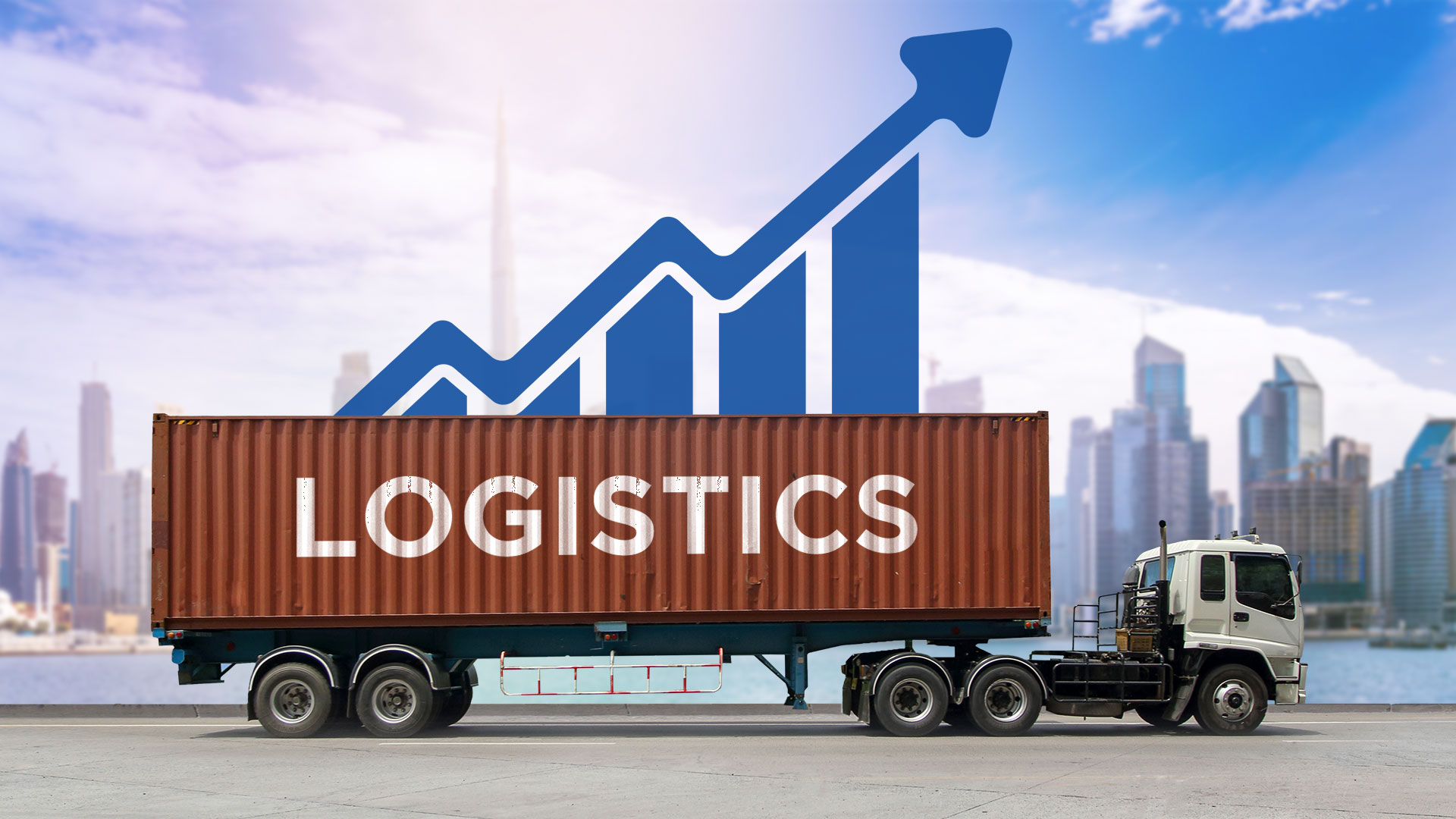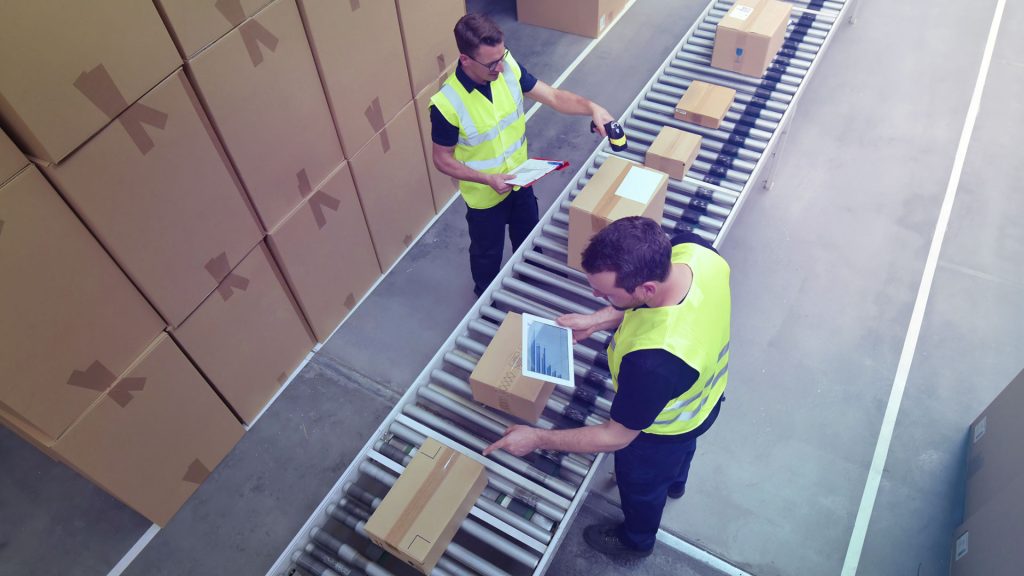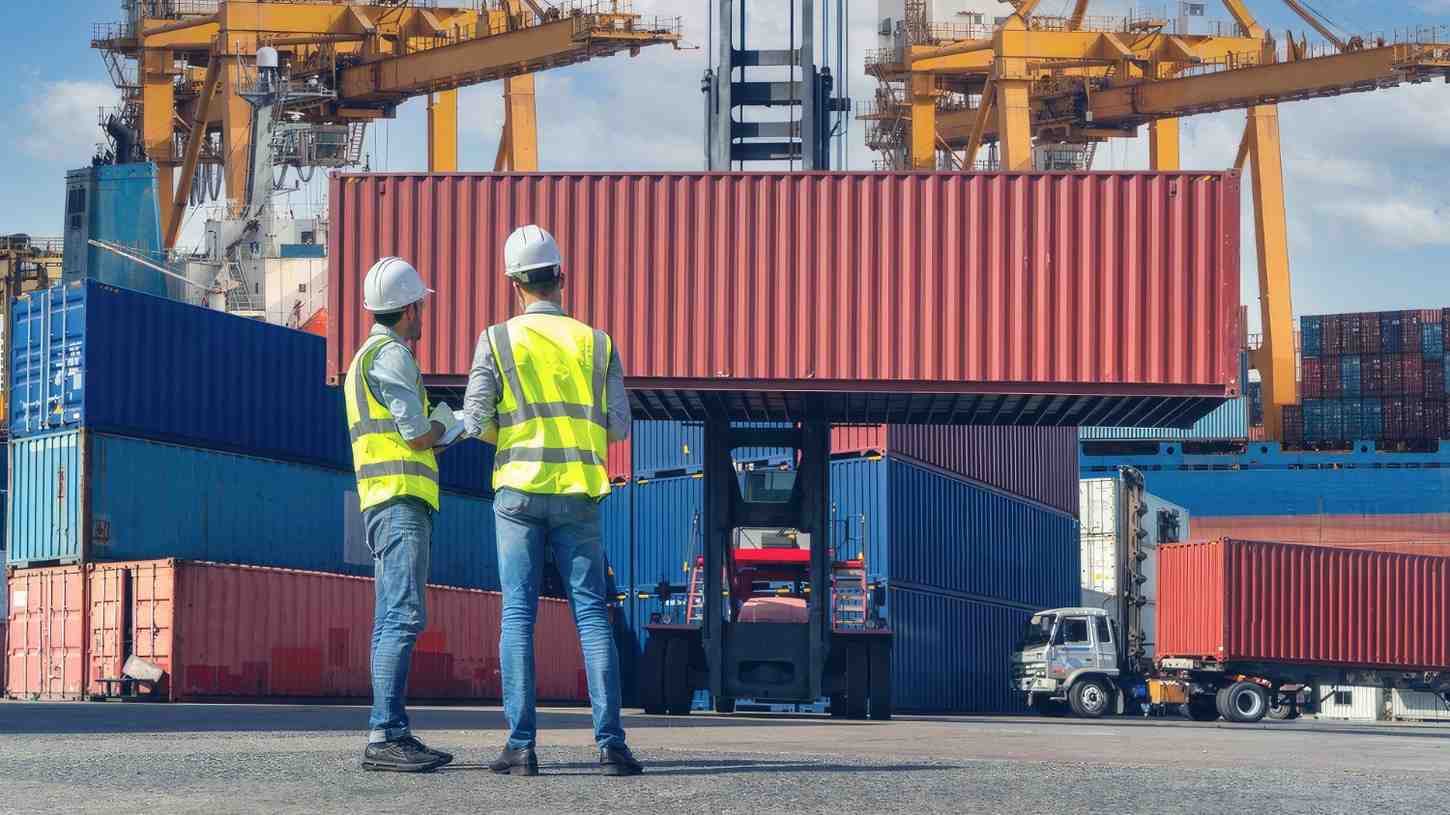
The economy of the United Arab Emirates (UAE) has evolved over the last couple of decades as a hub for the world in terms of trade, finance, and tourism. Such a transformation, backed by far-sighted leadership and strategic investments, positioned the UAE as a beacon of economic resilience and innovation. At the heart of this transformation lies the logistics sector, a major pillar supporting the country’s dream of linking the East and West with world-class infrastructure and efficient supply chain solutions. Logistics companies in the UAE not only facilitate seamless global trade but also significantly contribute to the country’s Gross Domestic Product (GDP), employment, and the empowerment of other key industries.
let’s take a look at the multi-dimensional role logistics companies have in catalyzing UAE’s economic growth, rooting their contribution to GDP, employment generation, trade enhancement, and support to various sectors, hence manifesting the economic impact of logistics in the UAE economy.
Economic Impact of Logistics on UAE’s GDP
The logistics segment is a key component of the UAE’s economic structure and makes substantial contributions to the nation’s GDP. This sector has been growing in the terrain of the strategic geographical location of the UAE, combined with the state-of-the-art infrastructure, and the pro-business policies by the government that are directed at fostering a favorable environment for logistics and trade.
Contribution to GDP
The logistics industry in the UAE is not just a facilitator of trade it’s a robust economic engine. According to recent studies, the logistics sector accounts for approximately 8% to 10% of the UAE’s GDP, a figure that highlights its significant impact. This contribution is serene for further growth, driven by ongoing investments in airports and seaport infrastructure, technology adoption, and the expansion of logistics hubs.
This sector contributes significantly to the country’s GDP and facilitates its ongoing diversification away from oil dependency. As of 2024, the UAE’s freight and logistics market is estimated to be valued at USD 20.03 billion and is projected to reach USD 27.51 billion by 2029, growing at a Compound Annual Growth Rate (CAGR) of 6.55% during the forecast period.
This growth is mainly driven by the consistent and fast-paced development in the sector, highlighting the strategic importance of logistics as a critical component of the UAE’s economic expansion.
This sector’s growth, even during economic downturns, brings out Dubai’s attractiveness to global logistics firms, thanks to its modern and extensive infrastructure. The 5th Global Logistics and Supply Chain Summit in Dubai highlighted the sector’s innovation, infrastructure, and growth, attracting industry experts from over 15 countries.
Looking ahead, the UAE economy is projected to grow by 5.7% in 2024, with non-oil GDP growth expected to reach 4.7%. This growth is supported by a record increase in non-oil foreign trade, which hit AED1.239 trillion in the first half of 2023, marking a 14.4% increase from the previous year.
These figures highlight the UAE’s effective efforts to diversify its economy and promote sustainable growth despite global economic challenges.
Comparison and Growth Trajectory
When compared to other sectors, logistics outpaces traditional industries like oil and gas in terms of its growth rate and potential for diversification of the national economy. The sector’s evolution reflects a deliberate shift towards a more diversified economy, reducing dependence on oil revenues and embracing sectors that promise sustainable growth. Over the past decade, the logistics sector has witnessed a compound annual growth rate (CAGR) exceeding 5%, a trend expected to continue as the UAE strengthens its position as a global logistics hub.
Case Studies
The economic impact of logistics on the UAE’s GDP with real-time information and case studies, several key points from recent analyses and reports:
- The UAE’s economy recorded a growth of 3.8% in the first quarter of 2023, reaching a GDP of $114 billion. This growth is attributed to a variety of sectors, with non-oil activities, including logistics, playing a significant role. The non-oil GDP showed a 4.5% increase, signaling the nation’s successful efforts to diversify its economy beyond its traditional oil base.
- The transport and storage sector, a key component of logistics, was highlighted for its substantial contribution to this growth. In Q1 2023, the sector’s contribution to the GDP amounted to AED 21.79 billion, marking a 10.9% increase compared to the same period in 2022. This growth outpaces other sectors, reflecting the strategic importance of logistics and transportation in the UAE’s economic development plan.
- Case studies from the logistics market in the UAE provide insight into the dynamism of this sector. For instance, Abu Dhabi Ports’ Logistics, part of AD Ports Group, received Good Distribution Practice (GDP) accreditation, underscoring the high standards and efficiency within the UAE logistics sector. Major market leaders such as Deutsche Post DHL Group, Agility Logistics, and Aramex International LLC contribute significantly to the industry, showcasing the competitive and diverse nature of the UAE’s logistics landscape. Initiatives by companies like Amazon. ae to launch international shopping experiences further boost the e-commerce ecosystem, demonstrating the logistics sector’s critical role in supporting digital commerce and international trade.
Employment Opportunities Generated by Logistics Companies

The logistics sector in the UAE is not only an essential driver of economic activity but also a significant source of employment. With the continuous expansion of logistics hubs and the increasing demand for efficient supply chain solutions, the industry has become a key employer, offering a wide range of job opportunities.
Job Creation
- Diverse Employment Opportunities: The logistics sector offers a variety of roles, ranging from operational tasks such as warehousing, transportation, and freight handling to more specialized positions in supply chain management, logistics technology, and customer service. This diversity attracts a wide talent pool, contributing to job creation across different skill levels.
- Skill Development and Professional Growth: Logistics companies invest in training and development programs to enhance their workforce’s skills, adapting to the industry’s evolving technological and operational demands. This emphasis on skill development supports career advancement opportunities within the sector, fostering a skilled labor force that can contribute to the UAE’s economic objectives.
Impact on Local Employment Rates
The expansion of the logistics sector has injected vitality into the UAE’s job market, playing a significant role in the government’s strategy to combat unemployment. The inherent need for a large workforce within the logistics industry, combined with the government’s push for local employment through Emiratization, means logistics companies are at the forefront of creating job opportunities for UAE nationals. This symbiotic relationship between the logistics sector and government initiatives not only boosts the economy but also ensures that UAE citizens are actively participating in an integral part of their nation’s growth.
Enhancement of Trade through Logistics
Logistics companies in the UAE are important in enhancing the country’s trade, both regionally and globally. By offering advanced logistics solutions, these companies facilitate the efficient movement of goods, strengthening the UAE’s position as a leading trade hub.
Role in International and Regional Trade
Facilitating Global Trade: The UAE’s strategic location as a crossroads of major trade routes, combined with its world-class logistics infrastructure, allows logistics companies to offer efficient transit for goods worldwide. This capability is crucial for maintaining the flow of trade, particularly in sectors such as oil and gas, commodities, retail, and e-commerce.
Supporting Regional Connectivity: Beyond global trade, logistics companies in the UAE play an important role in regional trade, offering connectivity across the Middle East and North Africa (MENA) region. This not only supports intra-regional trade but also provides access to emerging markets, contributing to economic diversification.
Impact on Trade Balance and Economic Diversification
- Contributing to a Positive Trade Balance: By optimizing supply chain efficiency, logistics companies help reduce the cost of imports and enhance the competitiveness of exports. This contributes to a positive trade balance, supporting the UAE’s economic sustainability.
- Driving Economic Diversification: The logistics sector’s support for various industries, from traditional sectors like oil to growing areas like e-commerce, plays a critical role in the UAE’s economic diversification strategy. By enhancing trade, logistics companies support the development of non-oil sectors, aligning with the UAE’s vision for a diversified economy.
The logistics sector’s contribution to employment and trade enhancement in the UAE highlights its important role in the nation’s economic growth and diversification efforts. By providing job opportunities and facilitating efficient trade, logistics companies are at the forefront of the UAE’s transition towards a knowledge and innovation-driven economy.
Support and Collaboration with Other Industries
The symbiotic relationship between logistics companies and various sectors in the UAE is a testament to the logistics sector’s foundational role in the economy. Let’s take a look at how logistics companies support other industries, how logistics solutions are tailored to serve diversified industry needs, and emerging trends that are expected to shape the future of the logistics industry in the UAE.
Role in Supporting Key Sectors
- Retail and E-Commerce: Logistics firms have greatly supported exponential growth in e-commerce in the UAE by ensuring swift delivery along with efficient supply chain management solutions. Such support at this level becomes critical for a reactive retail sector, aligned with the present online shopping trends, and is also inducting customer satisfaction through prompt deliveries and returns.
- Manufacturing: Just-in-time provision of raw materials and efficient flow of finished goods to markets by logistics companies is direct support to the manufacturing sector. This integration increases the competitiveness of manufacturing in the UAE on a global scale by reducing lead times and optimizing inventory levels.
- Oil and Gas: Given the UAE’s prominence in the global oil and gas sector, logistics companies offer specialized services, including the transport of hazardous materials, pipeline logistics, and support for offshore drilling operations, ensuring the safe and timely distribution of products.
Customized Logistics Solutions
- Tailored Solutions for Diverse Needs: Logistics companies in the UAE leverage technology and industry-specific expertise to offer customized solutions. From cold chain logistics for pharmaceuticals to secure logistics for valuable commodities, these tailored services ensure the unique needs of each sector are met, contributing to their efficiency and growth.
- Innovation and Technology Adoption: The adoption of technology, such as blockchain for supply chain transparency, drones for last-mile delivery, and AI for logistics optimization, demonstrates the sector’s commitment to innovation. These advancements enable customized and efficient logistics solutions, driving further growth in the industries they serve.
Future Trends in Logistics
- Sustainability in Logistics: Sustainability in Logistics: With increasing global emphasis on environmental responsibility, the logistics sector in the UAE is adopting greener practices. This includes the use of electric vehicles for deliveries, sustainable packaging materials, and optimizing routes to reduce carbon emissions.
- E-Commerce and Last-Mile Innovation: As e-commerce continues to grow, logistics companies are exploring innovative last-mile delivery solutions. These include autonomous delivery vehicles, parcel lockers, and drone deliveries, aimed at enhancing efficiency and reducing delivery times.
- Digital Transformation: The digitalization of logistics, through the use of platforms that offer real-time tracking and automation of customs processes, is set to improve the efficiency of cross-border trade. This digital transformation not only streamlines operations but also enhances the UAE’s attractiveness as a global logistics hub.
Conclusion
The logistics industry in the UAE is like the engine that keeps the country’s economy moving forward. It’s more than just trucks and ships; it’s about making sure everything from your online shopping to the oil the country is famous for gets to where it needs to go, fast and without a hitch. This sector isn’t just a big deal because it makes money (which it does, a lot!), but it’s also about creating jobs for lots of people and helping other businesses thrive, from small online stores to big manufacturing plants.
In simple terms, logistics is the backbone of the UAE’s plan to not rely too much on oil and to keep growing by trading with countries all around the world. With its top-notch airports and ports, and smart policies, the UAE is a key spot for global trade, making life better here and for its trade partners.
So, what’s the takeaway? The UAE’s logistics sector is crucial for its economy, helping it grow strong and steady. It’s all about moving goods efficiently, supporting online shopping, and making sure the UAE stays connected and competitive on the world stage. As the UAE keeps innovating and going green, its logistics sector is set to become even more important, making sure the country remains a top place for business and trade.
About Wahyd Logistics
Learn more about Wahyd Logistics technology-enabled logistics marketplace here. Allowing you to book, track, and manage your shipments with the touch of a button, our transparent, end-to-end logistics management solution caters to a number of industries worldwide.






